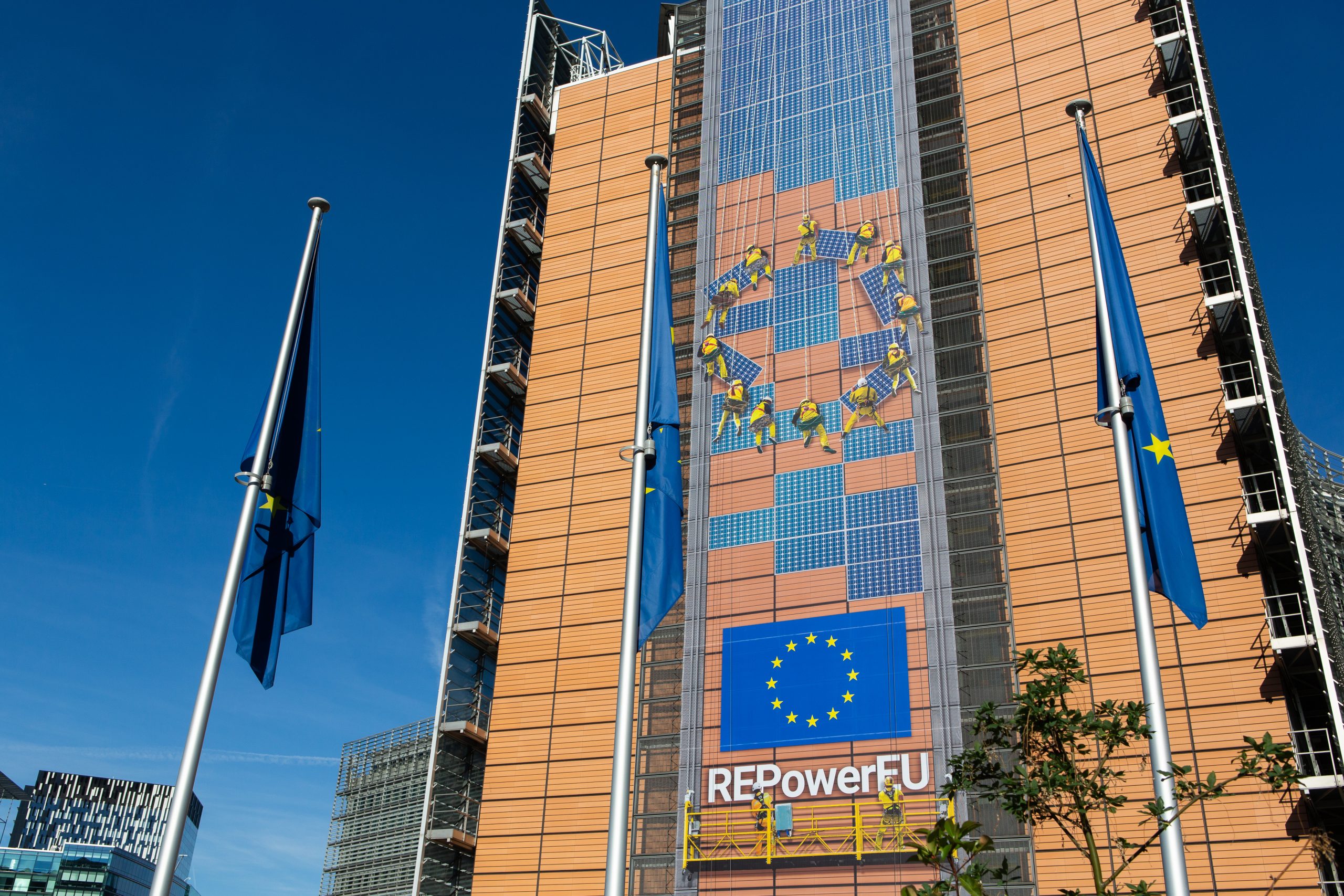One Year of REPowerEU: Commissioner Simson takes stock of progress on ending Russian fossil fuel imports
 European Union, 2022
European Union, 2022“Check against delivery”
Thank you.
It is a pleasure to be back in the Parliament. We had an excellent exchange in the ITRE Committee on the first anniversary of the REPowerEU Plan.
Looking back to the past year, the Russian war against Ukraine, as well as its weaponization of energy, kicked off an unprecedented transition.
The REPowerEU Plan, our response to energy market disruptions, has enabled a huge shift in the EU energy system.
I shared with the ITRE Committee our assessment of how far we have come in delivering REPowerEU.
And the numbers speak for themselves.
Let me give you the basic facts:
Europe has dramatically cut imports of Russian pipeline gas, down to around 20 billion cubic meters this year.
Russia is no longer the number one gas supplier to Europe. It is Norway.
Coal and oil imports are now banned by our strong sanctions.
Even countries highly dependent on Russian gas, like Germany or landlocked Czechia, have announced that they are close to, or have completely phased-out Russian gas.
One of the most notable changes concerns the EU gas infrastructure.
In less than one year, we have expanded the portfolio to 23 LNG regasification terminals. We have 8 new FSRU opened our under development and this will boost the EU’s regasification capacity to some 227 bcm by 2024 from current 178 bcm.
Our total LNG imports were 80 bcm in 2021, and 135 bcm in 2022, going up 68%.
But as important as diversification was our increased efficiency, reduced demand and an acceleration of renewables.
I want to give you just two examples:
Gas demand in Europe between August 2022 and January this year has gone down for an amount equivalent to 42 bcm of gas.
And the deployment of renewables reached an all-time high.
This has ensured that the European Green Deal transition has not been compromised – on the contrary. Last year, carbon emissions dropped in Europe by 2.5%.
This is a positive track record, but it is not the end of the story.
That is why today I brought to the ITRE Committee two messages.
First, we cannot let our guard down on gas security of supply.
Common storage policy and coordinated gas demand reduction will be needed also for this year.
We may also still have a difficult Summer ahead of us, not only Winter, with high temperatures and drought influencing electricity production and consumption.
So, we are still in uncharted waters and we must reinforce preparedness.
I am going to propose to Member States to prolong the voluntary demand reduction by 15% until next year. This has worked well and it is the best guarantee to achieve an adequate level of storage by November.
My second message was on renewables.
Yes, we have exceeded our own goals. But this is not enough.
High prices, disruption in supply chains, red tape, they are putting pressure on our renewables industry and putting at risk our targets for deployment.
We must do better on the renewables side to progress on REPowerEU.
Renewables are the home grown, cheapest and cleanest form of energy production. 2023 must be another record year for renewables, as well as the year after.
Let me conclude with the following point:
All the reforms of last year have been possible thanks to the unity of Member States and the Commission, which have acted in a remarkable unity of purpose, from sanctions to energy emergency legislation.
But this is also the result of millions of Europeans who have adjusted their lifestyles and cut down their energy consumption. Everyone has played their part.
I have also recalled to the Committee our support to Ukraine’s energy sector as a key part of REPowerEU This will continue for as long as it is needed, for as long as Ukraine will prevail.
Thank you.
